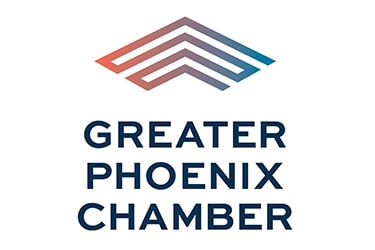
Author: Mike Huckins, Vice President of Public Affairs
There are just 13 days before the November 3rd General Election. If you haven’t voted yet, it’s critical that you take time to understand and give thorough consideration to this election cycle’s ballot measures.
In Arizona, ballot propositions play a pivotal role in establishing voter-supported policies at all levels of government. However, not all ballot measures are created equally. When enacted, some well-crafted initiatives create economic opportunities and strong policies that competitively position our state. Of course, there are also poorly drafted initiatives that haven’t been developed by policy experts or disregard components of Arizona’s revised statutes.
Overview of Arizona’s Initiative and Ballot Measure Process
Much like candidates, ballot measures must go through a particular process to get on the ballot and be presented to voters. Arizona has an open ballot measure process and as a result, a wide range of issues can be presented to voters. This means that issues that have not been vetted by policy experts or stakeholders can make it on the ballot. While ballot measures are important to the democratic process, Arizona’s laws make it nearly impossible for lawmakers to make any changes or adjustments to ballot measures once passed by voters. This results in unintended consequences and creates laws that cannot be easily adjusted or updated as issues evolve, and new information or technology becomes available. Frequently, creating legislation through the initiative process results in statutes that don’t meet future community needs.
Key Ballot Measures in 2020
Our Chamber’s Public Affairs Committee has carefully reviewed the initiatives on this year’s ballot and voted to oppose propositions that would be detrimental to the region’s economic prosperity.
- Proposition 207: The marijuana legalization question is back on the ballot for voters’ consideration this year. Prop 207 would legalize recreational marijuana use in Arizona. While the initiative allows employers to conduct drug testing on employees, it does not create enough protections and processes to ensure that employees do not come to work while inhibited by marijuana use. This is a complicated issue that requires a more thoughtful response.
Why it’s bad: Once again, the Chamber opposes this proposition due to its negative impact on businesses, employers, and taxpayers. More harm than good will result from legalization, with potential for severe consequences, including increased workplace accidents and lower overall workplace productivity, as well as straining an already struggling public health system, especially in the wake of a global pandemic.
In addition to health and workplace issues, the claimed state revenue benefits are likely to fall short. Arizona faces increased rates of addiction and other costs associated with drug treatment and rehabilitation. The prices of these drug treatment and rehabilitation programs make legalization an expensive proposal when state and city budgets are becoming exceedingly overwhelmed by fiscal strain.
- Proposition 208: Prop 208 would increase taxes on small businesses to provide a short-term increase in education funding with no restrictions or stipulations on school districts.
Why it’s bad: The Chamber stands as the voice of the business community in opposition to Prop 208 and its harmful impact on Arizona’s small businesses. As structured, Prop 208 places a burdensome tax on Arizona’s small businesses and sole proprietors. The proposed tax increases would increase income taxes by 77.7% and result in significant tax hikes for small businesses that pay taxes through the individual income tax. Arizona small businesses are critical drivers of the community’s economic prosperity and future. Our small businesses are responsible for hundreds of thousands of jobs and, now more than ever, need policies that support their ability to survive, thrive, and expand.
The business community opposes the funding mechanism of Prop 208, as the tax increase—which will impact small business owners—will limit Arizona’s ability to remain competitive and threaten the state’s economic recovery.
Prop 208 places the burden of increasing education funding squarely on the shoulders of small business owners—a demographic of individuals that are already economically disadvantaged as a result of the COVID-19 pandemic.
While the Chamber stands strongly in favor of increased support of our education system, Prop 208 is simply not the best mechanism to increase funding for our schools.
Over the next week, I hope you thoughtfully consider the issues outlined in this year’s ballot measures before casting your vote. And remember, any ballot measure you support cannot easily be updated, renewed, or fixed by lawmakers or even future voters.
If you need resources to prepare for this year’s election, please reference the Chamber’s 2020 Voter Guide.
займ на карту займ домохозяйкамполучить займ с плохой кибыстрый займ новороссийск займ qiwi кошелекбыстрый займ екатеринбургзайм под залог птс ангарск долгосрочный займ с плохой кредитной историейзайм от частного лица в москвевзять займ на карту быстро


